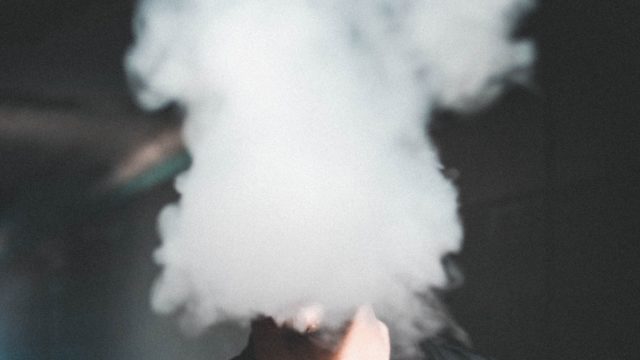
Do you bite your nails when you’re nervous? Maybe you’ve been on a date with somebody who chomps their ice through the entire meal. Perhaps you’re the parent of a child who refuses to wear a mouthguard for contact sports. These bad habits, among others, can have a serious impact on the well-being of your teeth and overall oral health. Learn more about the damage these habits can have and how to avoid them.
What is Bruxism?
Bruxism is more commonly known as teeth grinding, which can be caused by stress, anxiety, abnormal bites, or sleep disorders. Grinding your teeth can result in excessive wear and even fractures of your teeth.
If you suspect you’re grinding your teeth, contact your dentist for an appointment. Night guards and sleep appliances can help overnight.
Is Chewing Ice Bad for Your Teeth?
Ice is hard and provides a satisfying crunch, but that satisfaction could damage your teeth, enamel, and gums. Similar to teeth grinding, chewing ice can result in wear and tear on your teeth and ultimately damage your smile. Try substituting healthy food, like carrot sticks, cucumber slices, or apple slices. Also, try fixing or ordering your drinks without ice to avoid the temptation to chew.
Why Biting Your Nails is Harmful
Nail biting is not just unsanitary, it’s unhealthy. Your nails are one of the hardest substances on your body, and like ice cubes, they can damage your teeth. Over time, chewing your nails can wear away at your teeth’s enamel and cause fractures. In addition to the physical damage caused by nail biting, the dirt and germs under your nails can irritate your gums or cause infection. Frequent nail biters may even notice their teeth shift out of place requiring braces to correct the problem.
Like most bad habits, nail biting can be overcome. Start by keeping your nails neatly trimmed and filed to avoid temptation of uneven edges. Figure out when you have the urge to gnaw on your nails and identify the stressor that causes it and address the issue. You can also recruit friends and family to remind you to stop when they notice.
The Importance of Wearing a Mouthguard for Sports
Many people resist wearing mouthguards, but if the best players in professional sports do it, there has to be a good reason. Simply put, they protect your teeth. Wearing a mouthguard protects your teeth in the event you are hit in the mouth or face during a sports competition. Choosing a mouthguard that fits properly and allows you to breathe and speak is important to prevent tooth damage or loss. If you’re worried about comfort, try a custom sports mouthguard.
Say No to Tobacco
Using tobacco can cause many problems with your body including your teeth. Aside from staining your teeth, tobacco use causes bad breath, puts you at greater risk for gum disease, and leads to tooth decay. Tobacco use, especially smokeless tobacco, also puts you at greater risk for oral cancer. If you smoke, it’s important to quit, and there are many supports in place to help you stop.
Watch What You Eat
Eating and drinking are crucial for our survival, but not all foods are created equal and some can do serious damage to your teeth. Starchy, sugary, and sticky foods and drinks are the worst things for your teeth. They leave behind residue that is difficult to remove from your teeth and can break down tooth enamel over time leading to tooth decay. How many of these foods are putting your teeth at risk?
- Hard candy is loaded with sugar and can chip or break your teeth.
- Citrus fruits are highly acidic and can erode tooth enamel over time.
- Potato chips and dried fruit should be enjoyed in moderation and followed up with proper brushing and flossing to prevent build up on and between teeth.
- Skip the sodas because they are acidic and loaded with sugar that can attack your tooth enamel.
- Sports drinks may help athletes recover from intense competitions, but they are often packed with sugar.
- Even though there’s no sugar or starch involved, eating ice can chip or break your teeth requiring expensive repairs.
Choose to enjoy these foods in moderation to limit the negative effects and try to eat as many good foods, like leafy greens, as possible.
Tips for Healthier Teeth
Some bad dental habits may be tougher to quit than others, but there are many ways to improve the health of your teeth. Good oral care habits are the first step in fighting the effects of bad dental habits.
- Brush carefully and thoroughly for two minutes at least twice per day.
- Use the proper toothbrush for you and replace it every three months.
- Don’t forget the fluoride! Mouthwash, toothpaste, and even dental floss can contain fluoride.
- Floss daily to remove build-up between your teeth.
- Brush your tongue to remove bacteria and fight bad breath.
- Visit your dentist every six months for a check-up and professional teeth cleaning.
Preventative Oral Care with Jefferson Dental
Stay ahead of these problems or prevent new ones by keeping regular appointments with your dentist. It is recommended that you see a dentist every six months for a preventative check-up and professional teeth cleaning.




